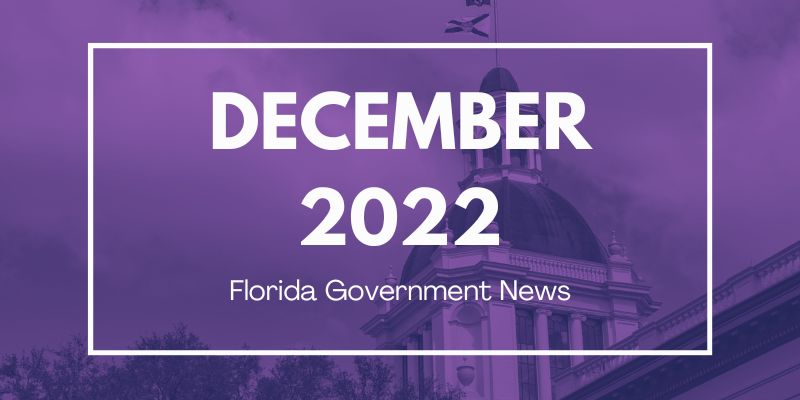
Florida’s third special legislative session on insurance, Gov. DeSantis’s second inaugural address, a grand jury investigation related to COVID-19 vaccines, and upcoming scrutiny of the teaching of critical race theory (CRT) and diversity, equity, and inclusion (DEI) activities in higher education are the top stories I write about in this Florida Government News post.
Special Legislative Session on Insurance
The Florida Legislature held a third special session on insurance Dec. 12-16.
Background
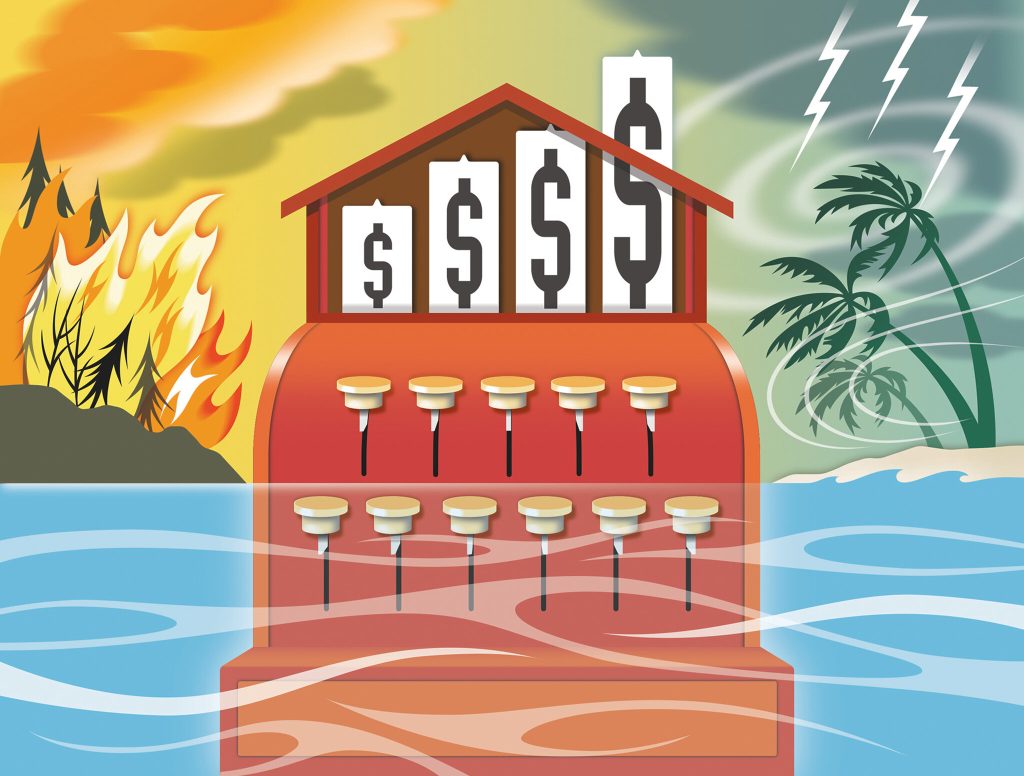
Florida’s property owners have long been facing rising insurance premiums, and in 2022, the situation became an acknowledged crisis. There have been mounting losses at smaller insurers constituting the bulk of the home-insurance market, compounded by a shortage of backup reinsurance coverage and a highly litigious environment in the state. Some carriers have been driven to insolvency.
The interwoven problems have gained urgency as home insurance rates keep rising. Florida’s average annual home insurance premium of $4,231 is the highest in the nation and nearly triple the nationwide average. These premiums are also climbing at a rate of about 33% annually, compared to 9% boosts across the rest of the nation. (CNN; Tallahassee Democrat)
Citizens Property Insurance Corporation, the state-run insurer of last resort, became the largest property insurer in the state in August. Its over 1 million policies represent more than 10 percent of the Florida market. (Insurance Journal)
Session Goals
Gov. Ron DeSantis said back in October in calling for the session that he wanted to provide property tax cuts to victims of Hurricane Ian and pass legislation to further bolster the beleaguered property insurance industry. (Florida Politics)
In convening the special session, Senate President Kathleen Passidomo and House Speaker Paul Renner said its “sole and exclusive purpose” was to consider legislation to:
- reduce the cost of litigation regarding property insurance claims,
- foster the availability of reinsurance for property insurance,
- modify deadlines for notices of property insurance losses and limit the assignment of benefits under property insurance policies,
- prescribe property insurance requirements regarding alternative dispute processes, coverage options, and agent practices,
- improve the financial stability of the Citizens Property Insurance Corporation, reduce the potential for assessments related to the Citizens Property Insurance Corporation, and foster the transition of Citizens Property Insurance Corporation policies to the private property insurance market,
- provide tax relief and other financial assistance related to damages resulting from Hurricanes Ian and Nicole,
- provide additional mechanisms to support the Division of Emergency Management for natural disaster response, recovery, and relief efforts,
- establish a statewide toll credit program for frequent Florida commuters, and
- provide appropriations to implement such legislation.
The goals said nothing about addressing property owners’ high and ever-rising premiums.
Insurance Relief
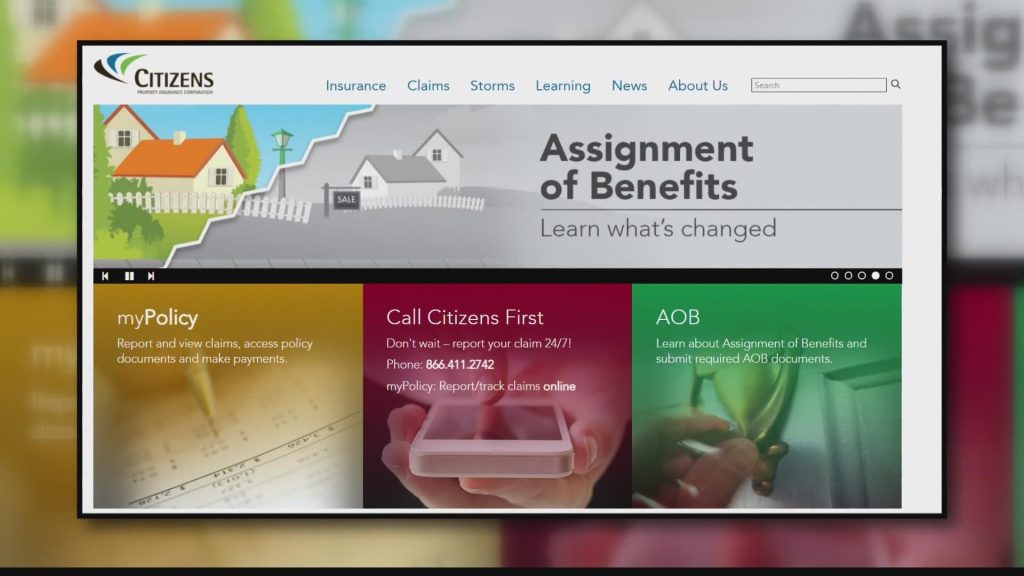
SB 2A – Property Insurance passed by a 27-13 largely party-line vote in the Senate and an 84-33 party line vote in the House.
The measure is decidedly industry-friendly. It “[makes] significant strides towards long-standing Florida Chamber priorities, specifically reining in Florida’s lawsuit abuse problems, eliminating cost drivers ripe for fraud such as assignment of benefits, and reducing future hurricane taxes by taking steps towards returning Citizens Property Insurance Corporation back to the insurer of last resort,” said Chamber President Mark Wilson. (Insurance Journal)
Specifically, the bill:
- Creates a $1 billion taxpayer-funded aid program for struggling insurers, adding on to the $2 billion reinsurance fund established in May.
- Eliminates “one-way” attorney fees and prohibits assignments of benefits. “These two reforms alone will help push back against the unscrupulous roofers, public adjusters, and attorneys who have preyed upon unsuspecting policy owners for years, driving up costs for all Floridians.” (Opinion: Floridians Against Lawsuit Abuse)
- Requires Citizens residential policyholders to purchase private insurance if they get an offer for a comparable policy less than 20% higher when they go to renew.
- Adds new flood insurance requirements for all Citizens’ customers, regardless of whether the property is in a flood zone or not, including residents of high-rise condominiums.
- Allows insurers to offer policies that require property owners to enter binding arbitration, barring them from suing, in exchange for some discount on their premiums.
- Reduces from two years to one year the window to file a claim and requires insurers to respond to claims in 60 days rather than the current 90 days.
“The issues in Florida’s property insurance market did not occur overnight, and they will not be solved overnight,” DeSantis said in signing the bill. “The historic reforms signed today create an environment which realigns Florida to best practices across the nation, adding much-needed stability to Florida’s market, promoting competition and increasing consumer choice.” (DeSantis News Release)
Democrats said the bill gave too much to insurance companies without mandatory rate reductions or protections for consumers. Proposed amendments pushing for insurance rate freezes, consumer subsidies, and other matters were defeated in party-line votes. (Florida Politics)
Hurricane Relief
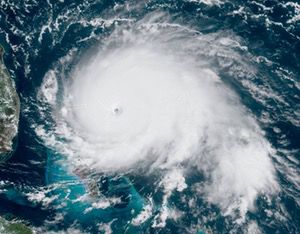
In addition to addressing the property insurance crisis in the special session, legislators unanimously passed a bill aimed to benefit victims of Hurricanes Ian and Nicole. SB 4A – Disaster Relief:
- extends the due dates for property taxes levied in 2022 for property owners whose property was destroyed or rendered uninhabitable by Hurricanes Ian or Nicole,
- provides property-tax refunds for homes that were made uninhabitable for at least 30 days by Hurricane Ian or Hurricane Nicole, and
- appropriates $350 million to the Division of Emergency Management, $150 million to the Florida Housing Finance Corporation, and $251.5 million to the Department of Environmental Protection to further supplement hurricane relief efforts across the state.
Toll Relief
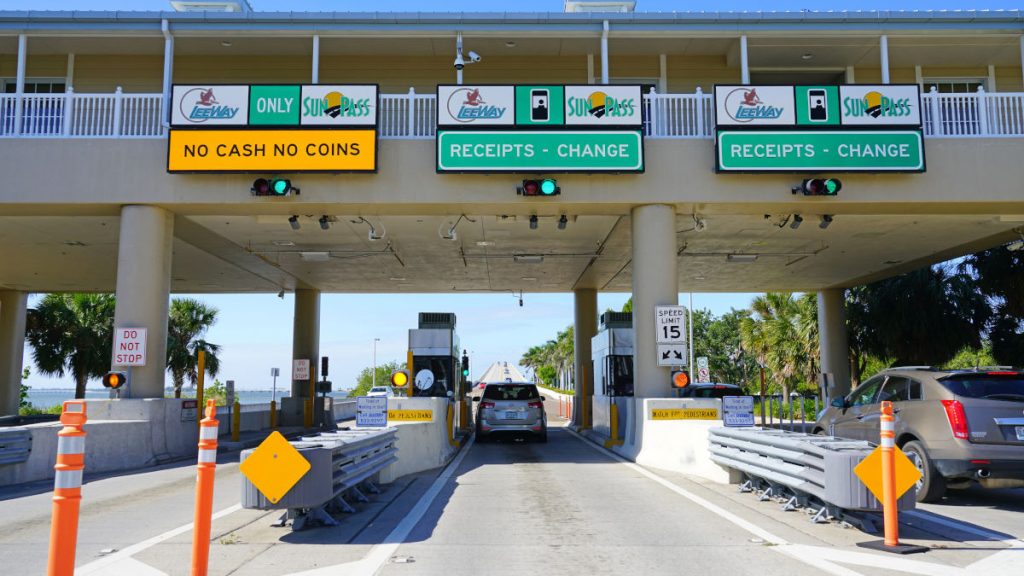
In the special session, legislators also unanimously passed SB 6A – Toll Relief to provide savings for Florida commuters. The bill:
- provides a 50 percent discount during 2023 for SunPass and other Florida transponder accounts whose drivers record 35 or more transactions in a month, and
- appropriates $500 million to reimburse the Florida Department of Transportation, the Florida Turnpike Enterprise, and other Florida toll facility entities for account credits issued.
DeSantis’s Second Inaugural Address
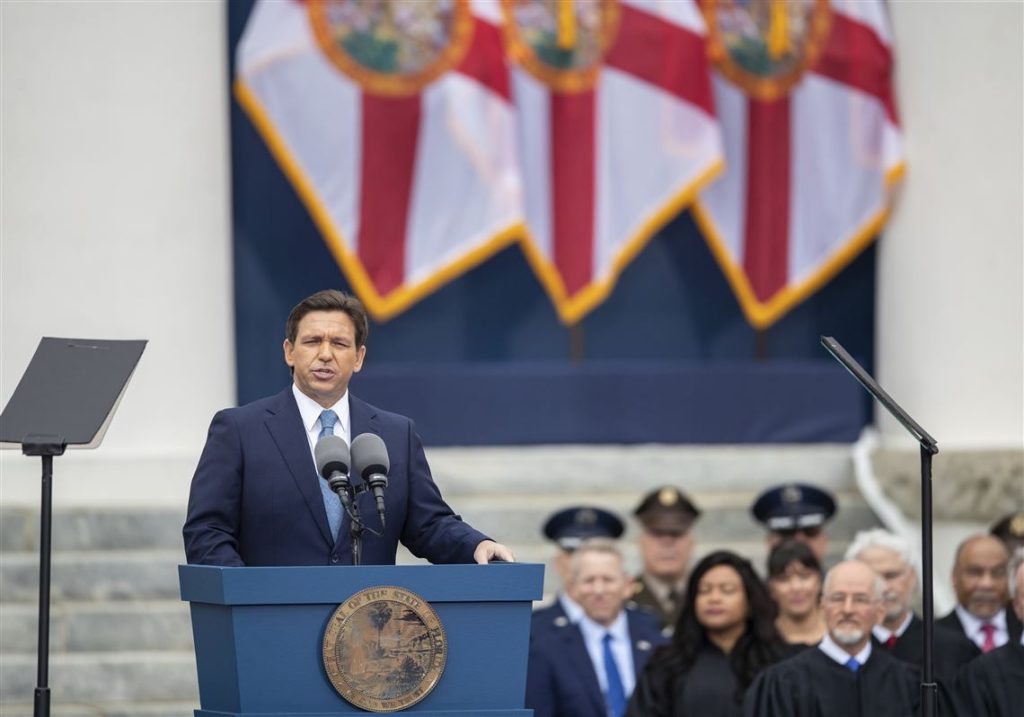
DeSantis was inaugurated for a second term on Jan. 3, 2023. Read the transcript of the inaugural address here.
In the address, DeSantis highlighted the progress that Florida has made to improve the lives of its residents as a result of his administration priorities, including “guaranteeing access to high-quality education, creating a robust economy that continues to grow faster than the nation’s, providing access to resources for those recovering from hurricanes, and investing record funding into the Everglades and Florida’s critical water resources.” In concluding his speech, he reaffirmed his commitment to “ensuring our state remains the Free State of Florida” and set priorities for his second term in office.
News reports described the speech as “highlighting Florida as a success story amid speculation about 2024 plans” (CBS News), striking “a defiant tone” (The Hill), and “taking aim at the federal government” (Washington Post).
FOX News said the “likely 2024 GOP presidential contender” called Florida the “land of sanity,” as states across the nation embraced policies that, he said, are “coddling criminals and attacking law enforcement.” He and Floridians “reject this woke ideology.” (FOX News)
A Palm Beach Post editorial said the speech “skirted his controversies” and left unsaid his second-term plans for gun ownership/safety, abortion choice, gender equality, and COVID-conscientiousness. (Palm Beach Post)
DeSantis Request for Grand Jury
On Dec. 13, DeSantis petitioned the Florida Supreme Court to impanel a statewide grand jury “to investigate crimes and wrongdoing committed against Floridians related to the COVID-19 vaccine.”
“The pharmaceutical industry and the FDA have refused to release patient-level data for independent researchers,” DeSantis said in announcing the move. “Meanwhile, the COVID-19 vaccines produced by Pfizer and Moderna have received FDA approval for pediatric and adult patients and continue to be marketed as safe and effective, even though the vaccines do not prevent transmission and adverse events have been minimized and disregarded by the Biden Administration and Big Pharma.” (DeSantis News Release)
The request for a grand jury argues that pharmaceutical companies had a financial interest in creating a climate in which people believed that getting a coronavirus vaccine would ensure they couldn’t spread the virus to others. (Associated Press)
On Dec. 22, the Court agreed to the request. The grand jury will meet for one year.
CRT, DEI in Higher Ed
The DeSantis administration is asking state universities across Florida to report information about critical race theory and diversity, equity, and inclusion initiatives. The request was made in a Dec. 28 memo from the governor’s office to Education Commissioner Manny Diaz and Ray Rodrigues, chairman of the Florida Board of Governors, which oversees state universities. It references a law commonly known as the “Stop Woke Act” and mentions the information is needed for budget planning. It is unclear what the administration plans to do with the information. (South Florida Sun Sentinel)
The memo drew criticism from faculty union leaders, who view the inquiry as an attempt to silence them. “In the absence of transparency, this request sends a chilling message that anyone who engages with topics that elected officials deem controversial is not welcome in the state of Florida,” said Amanda Phalin, chairwoman of the University of Florida Faculty Senate. (WCJB)
That’s it for my latest recap of Florida government news.
